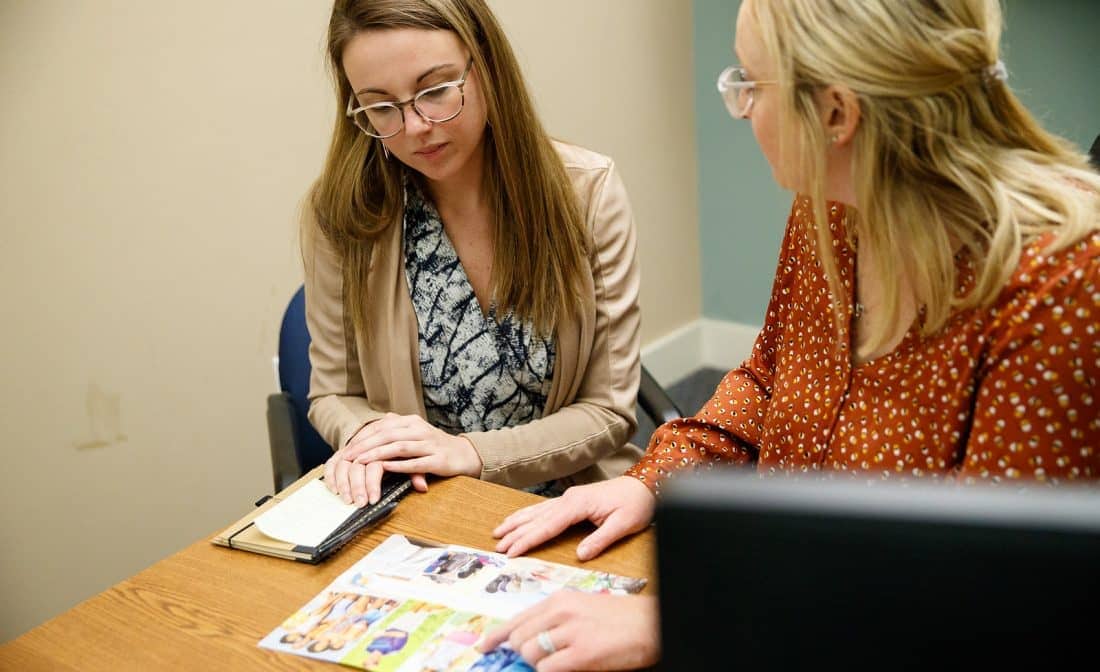Tips for Landing Your First Job After Graduation
Landing your dream job after graduation is no easy feat, but with the proper direction and preparation, you’ll be celebrating in no time. Two experts, Dwayne Peterson of New College of Florida, and Amanda Johnson from Arkansas Tech University share their tips for landing your dream job after graduation:
- Develop a strategy
Dwayne Peterson, New College of Florida:
Searching for jobs requires a plan that you have to continuously put into action and must include both using the internet and outreaching to people. Consider finding out how people who have jobs that interest you found their jobs. Then, align your plan accordingly. For example, what are industry “insider” websites? Should you consider a post-graduate internship, temporary or freelance work to build your resume? Are entry-level trainee programs common? Do you need to take an exam or gain a certification?
Leverage your college career center’s resources. In addition to offering career advising, all college career centers develop relationships with employers. They may host career fairs and events. They should also have a system with job listings from employers recruiting directly from your campus. For example, all college graduates, no matter where you went to school, have access to Handshake, an app specifically for college students to connect with employers hiring for internships and entry-level positions.
Third party job websites, like Indeed, Google, or LinkedIn, make it easy to find opportunities, but your plan needs to go beyond them. These sites only have a fraction of jobs that are available to you. Maximize third party sites by creating email alerts where new jobs come to you so you don’t miss opportunities. But, when searching online, spend most of your time researching specific employers that hire for jobs that interest you and going directly to their specific career pages.
It never hurts to apply for something. Cast a wide net by applying for anything that interests you. You don’t have to meet all qualifications – just most qualifications. For most new college grads, this will likely be in the 0-2 years experience range.
- Establish connections.
Dwayne Peterson, New College of Florida:
Think people as much as you think jobs. 80% of jobs are found through connections and not from websites. Most of your search strategy should be focused on connecting with people you know as well as introducing yourself to people you don’t. Think about all the people in your life that might be able to help you. Family, family friends, Facebook connections, your church, student club, classmates, etc. When it comes to finding work, you never know who can help you.
- Leverage your LinkedIn network
Dwayne Peterson, New College of Florida:
LinkedIn is an essential tool in job searching no matter your industry. With nearly 800 million users, LinkedIn provides the greatest opportunity to connect with all kinds of people including recruiters, professionals, hiring managers, classmates and alumni. This should also be the main tool you use to keep up with everyone you meet professionally. Contrary to other social media platforms, it is okay and encouraged to connect with strangers on LinkedIn. You just have to add a personalized note to your connection request so that the person has an idea of who you are and why you’re interested in connecting. Once the person accepts your connection, you can directly message them. You also now have easier access to their network.
Your alumni community is a great place to start on LinkedIn. Being a part of an alumni network is an advantage you have as a new college graduate. Alumni want to help each other. Look up the school page for your college on LinkedIn and find the “Alumni” option. This will pull a search of everyone who went to your college on LinkedIn.
Try asking for advice rather than for a job directly. It can feel overwhelming when someone directly asks you for a job especially when you don’t have one to offer. But, when you start with asking for advice, this opens the door for the person to help — everyone has a story to share.
Amanda Johnson, Director of Career Services, Arkansas Tech University :
LinkedIn is an excellent source for networking and recruiting opportunities. A student can build their brand and express their availability and skills pertaining to open positions. Joining groups pertaining to their specific major will allow them, not only to learn information in their field of study, but to make connections for mentors and relationships within companies they are looking to work at after graduation. Our office helps students build their social thumbprint via LinkedIn tips, Handshake profile tips, and all social media best practices. Let Career Services help build your digital portfolio.
- Promote yourself.
Dwayne Peterson, New College of Florida:
One of the more impressive things you can do is create a convincing LinkedIn profile with a headline and summary that captures your professional interests, create a website with an about us segment, a résumé, and perhaps previous samples of your current work and skills. Some industries may also expect a portfolio or website..Use everything you have to develop a convincing story. Work experience, internships, significant class projects, volunteering, campus leadership roles – all of these experiences show your skills in action and can be used on your resume.
Don’t limit yourself by your major! This is particularly true if you’re a liberal arts graduate. The “useless” liberal arts degree is a pervasive and demoralizing myth. Employers need graduates from all kinds of majors. However, many times it’s not for the academic knowledge of your degree, but rather the transferable skills you’ve gained through your classes and experiences. These would include skills like critical thinking, communication, initiative, team work, project leadership, and professionalism.
When you apply for jobs, always tailor your cover letter and resume by using the exact language in the job ad. Employers don’t read resumes for long – likely less than 10 seconds! So, make sure to use different section titles on your resume to move the most relevant experiences to the top of your resume.
- Keep growing.
Dwayne Peterson, New College of Florida:
As you work your search plan,Regardless of whether you land a job or not, continue to develop your skillset – whether technical or non-technical. Are there short-term projects or volunteer roles you can take on that would add to your resume or portfolio? Can you take a class on Coursera, SkillShare, or LinkedIn Learning to expand your skills for specific jobs that interest you? This can show employers that you’re serious about your goals.
Amanda Johnson, Director of Career Services, Arkansas Tech University :
Whether students are attending conferences, reading books, taking classes or workshops, collaborating with colleagues, learning updated information is vital. Career Services personnel constantly stays in contact with industry leaders to remain updated on their needs and expectations, whether the need begins with the resume they are looking to receive to the employee skill sets desires. We provide this information to our students through workshops, emails, in-house information available to them, etc. Due to employer skills-gap complaints Nationwide, Career Services revamped our ELEVATE Blackboard Course. This is our online Career Advancement Academy. Students have 10 semesters to complete 6 modules. Each module states the student ROI and incorporates core competencies that employers are looking for in new hires.
- Trust yourself. Remember to follow your heart – at the end of the day, you’re the best counselor you have:
Amanda Johnson, Director of Career Services, Arkansas Tech University:
It is good to follow your heart in the sense that the student needs to seek positions where they will enjoy their work, as well as, be paid appropriately. However, students may have to start in a different place than what they had in mind to get into their career field and get where they want to go. That’s why it’s important to understand that our career is a life-long ever-growing journey. Just because we love something does not mean we will be happy every day and every moment. We must look for good, the bad, and the ugly and learn and grow from it all.
Dwayne Peterson, New College of Florida:
This process is slower than you may think. As the risk of COVID passes, employers are increasing their hiring and the entry-level job market remains strong. But, it will still likely take 3-6 months of active searching to get an offer. So, make sure you take care of yourself and practice positive mental health strategies to stay focused and motivated.
As the world grows more complex, employers are looking for workers who can remain dedicated, competent, and reliable in the face of new challenges. Thankfully, we have found excellent colleges and universities that make it a point to create the exact kind of employees that are needed today. Institutions with a Career Development badge are in tune with the ever-changing job market and prepare students to meet demands through one-on-one counseling to search for a job; résumé, cover letter, and interview assistance to apply to a job; and comprehensive access to internships and other real-world experiences to prepare for a job. Check out our great schools to find the one that is right for you.




